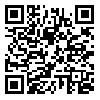دوره 23، شماره 3 - ( 7-1404 )
جلد 23 شماره 3 صفحات 320-311 |
برگشت به فهرست نسخه ها
Download citation:
BibTeX | RIS | EndNote | Medlars | ProCite | Reference Manager | RefWorks
Send citation to:



BibTeX | RIS | EndNote | Medlars | ProCite | Reference Manager | RefWorks
Send citation to:
Salam Dakhel Alwatify S, Radhi M M. Diabetes Health Literacy as a Mediator Between Diabetes Self-management and Medication Adherence Among Diabetic Patients. Iranian Rehabilitation Journal 2025; 23 (3) :311-320
URL: http://irj.uswr.ac.ir/article-1-2446-fa.html
URL: http://irj.uswr.ac.ir/article-1-2446-fa.html
Diabetes Health Literacy as a Mediator Between Diabetes Self-management and Medication Adherence Among Diabetic Patients. مجله انگلیسی زبان توانبخشی. 1404; 23 (3) :311-320
چکیده: (2427 مشاهده)
Objectives: Diabetes is a major global health challenge, requiring effective self-management and medication adherence to achieve optimal outcomes. Health literacy, which includes the ability to understand and apply health information, mediates these behaviors. This study aimed to investigate the mediating role of diabetes health literacy in the relationship between self-management practices and medication adherence among patients with diabetes.
Methods: This correlational study was conducted at the Babylon Diabetes and Endocrinology Center, and 328 patients with diabetes were selected by convenience sampling. Data were collected using the diabetes self-management questionnaire (DSMQ), medication adherence report scale (MARS), and diabetes health literacy scale (DHLS). Validity and reliability were confirmed by expert reviews and pilot testing (Cronbach’s α>0.80). Statistical analysis included Pearson correlation and simple linear regression.
Results: The mean age of the participants was 45.35±9.38 years, and 56.1% were female. Moderate levels of self-management (63.1%, 34.44±5.35) and health literacy (46.3%, 28.12±5.86) were observed, while 58.8% showed good adherence to medications (25.87±3.36). Regression analysis revealed that diabetic health literacy was a significant predictor of diabetes self-management (β=0.625, P<0.001) and medication adherence (β=0.580, P<0.001).
Discussion: Health literacy is a strong predictor of improved diabetes self-management and medication adherence, underscoring its critical role in diabetes management outcomes. Healthcare providers should integrate structured health literacy programs, streamline communication, and provide personalized support to empower individuals with diabetes.
Methods: This correlational study was conducted at the Babylon Diabetes and Endocrinology Center, and 328 patients with diabetes were selected by convenience sampling. Data were collected using the diabetes self-management questionnaire (DSMQ), medication adherence report scale (MARS), and diabetes health literacy scale (DHLS). Validity and reliability were confirmed by expert reviews and pilot testing (Cronbach’s α>0.80). Statistical analysis included Pearson correlation and simple linear regression.
Results: The mean age of the participants was 45.35±9.38 years, and 56.1% were female. Moderate levels of self-management (63.1%, 34.44±5.35) and health literacy (46.3%, 28.12±5.86) were observed, while 58.8% showed good adherence to medications (25.87±3.36). Regression analysis revealed that diabetic health literacy was a significant predictor of diabetes self-management (β=0.625, P<0.001) and medication adherence (β=0.580, P<0.001).
Discussion: Health literacy is a strong predictor of improved diabetes self-management and medication adherence, underscoring its critical role in diabetes management outcomes. Healthcare providers should integrate structured health literacy programs, streamline communication, and provide personalized support to empower individuals with diabetes.





